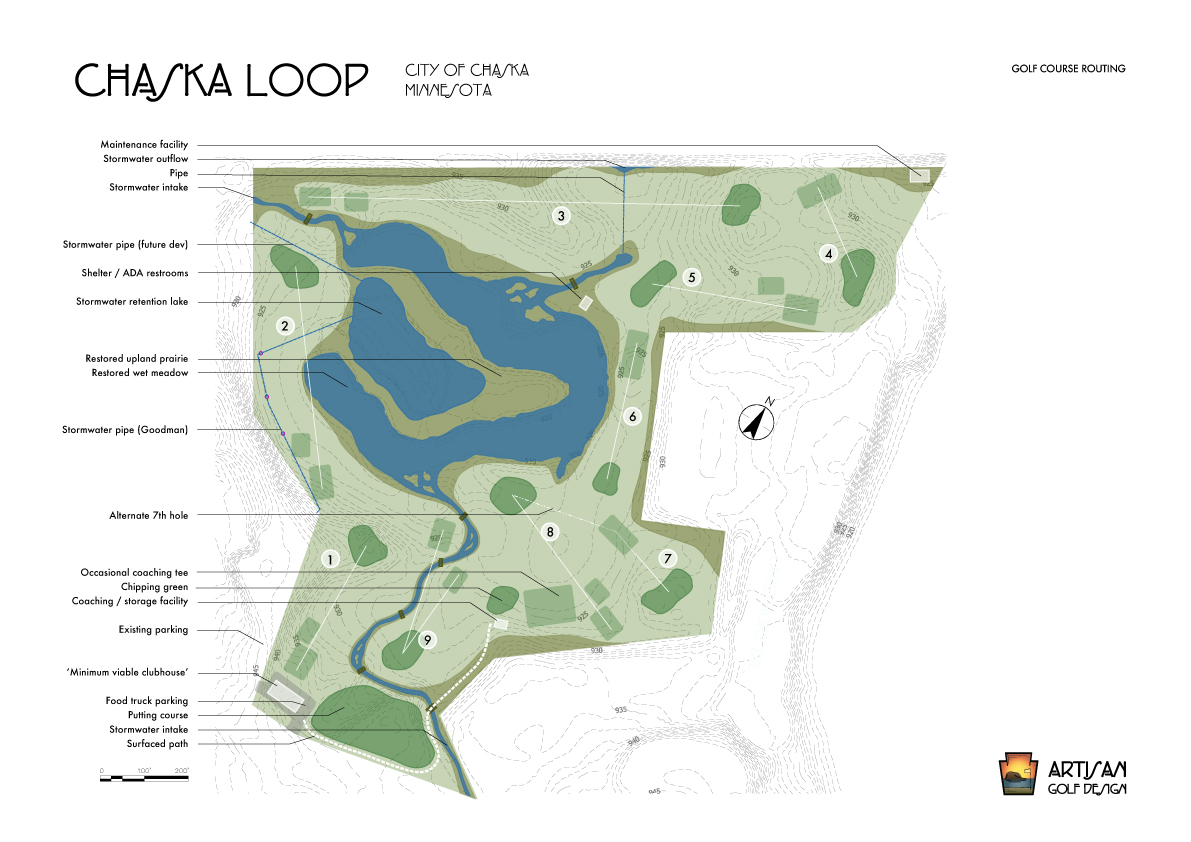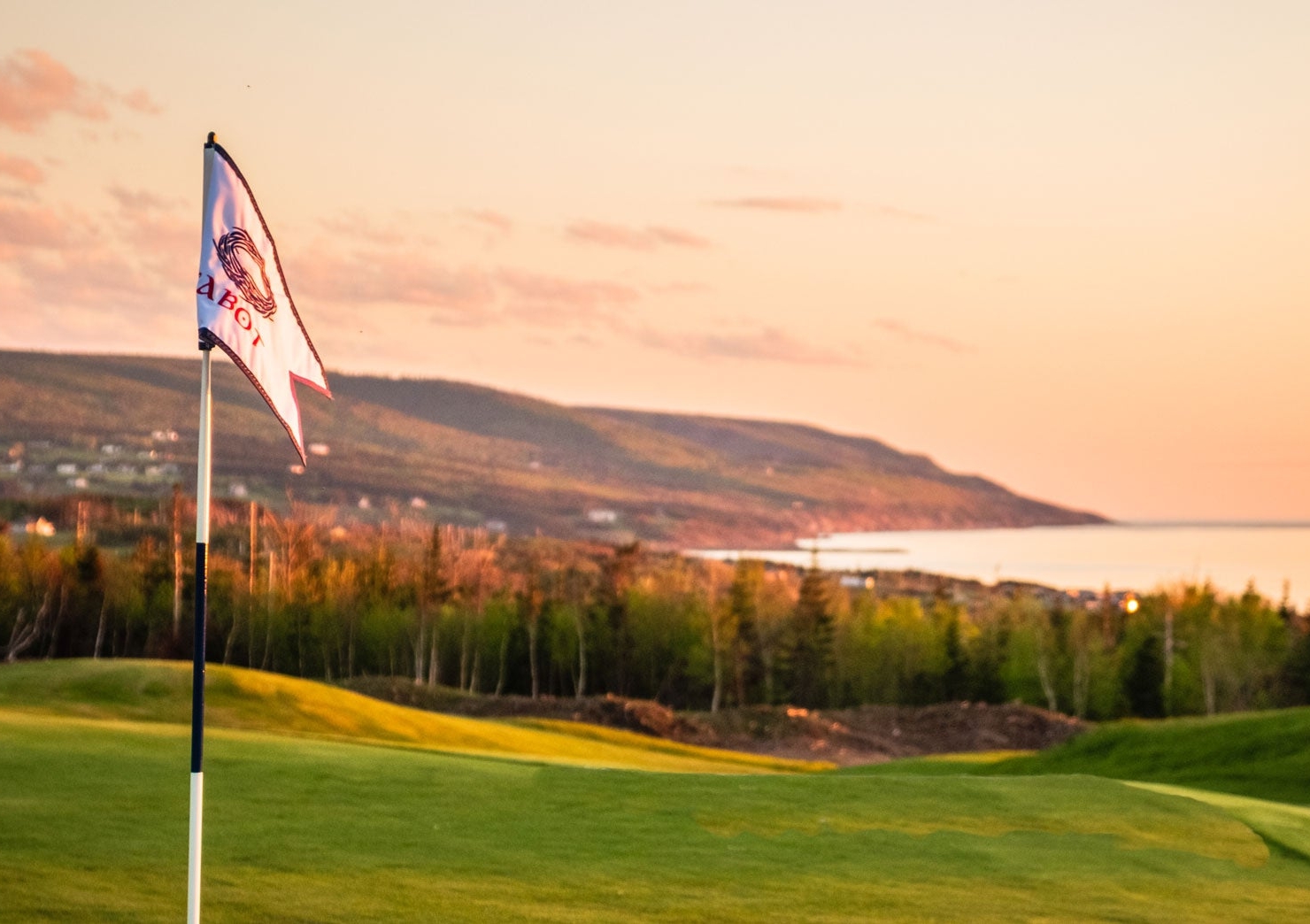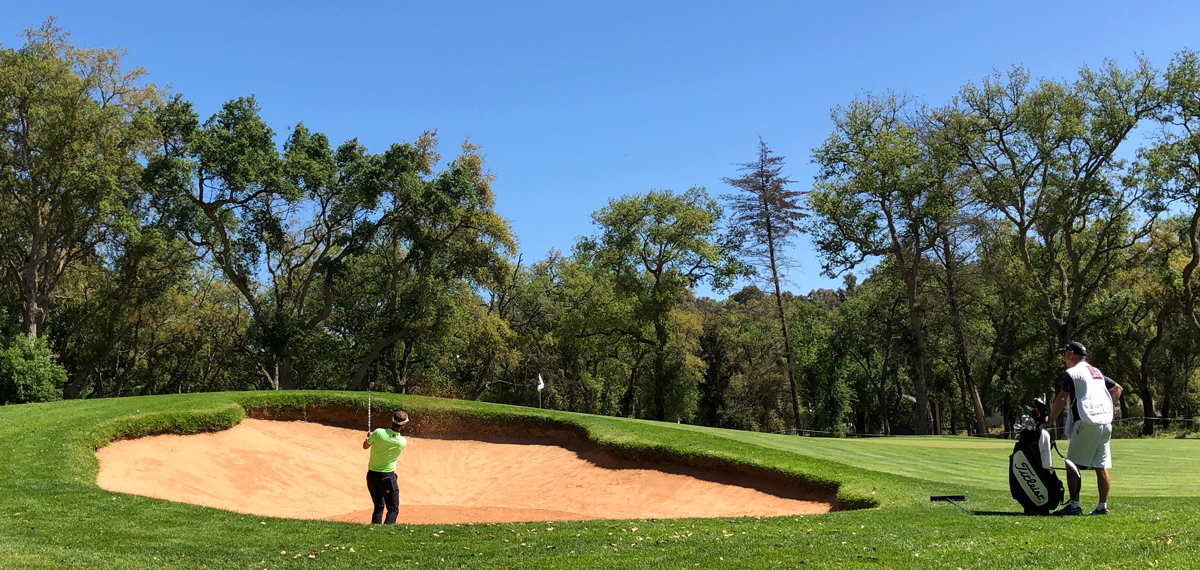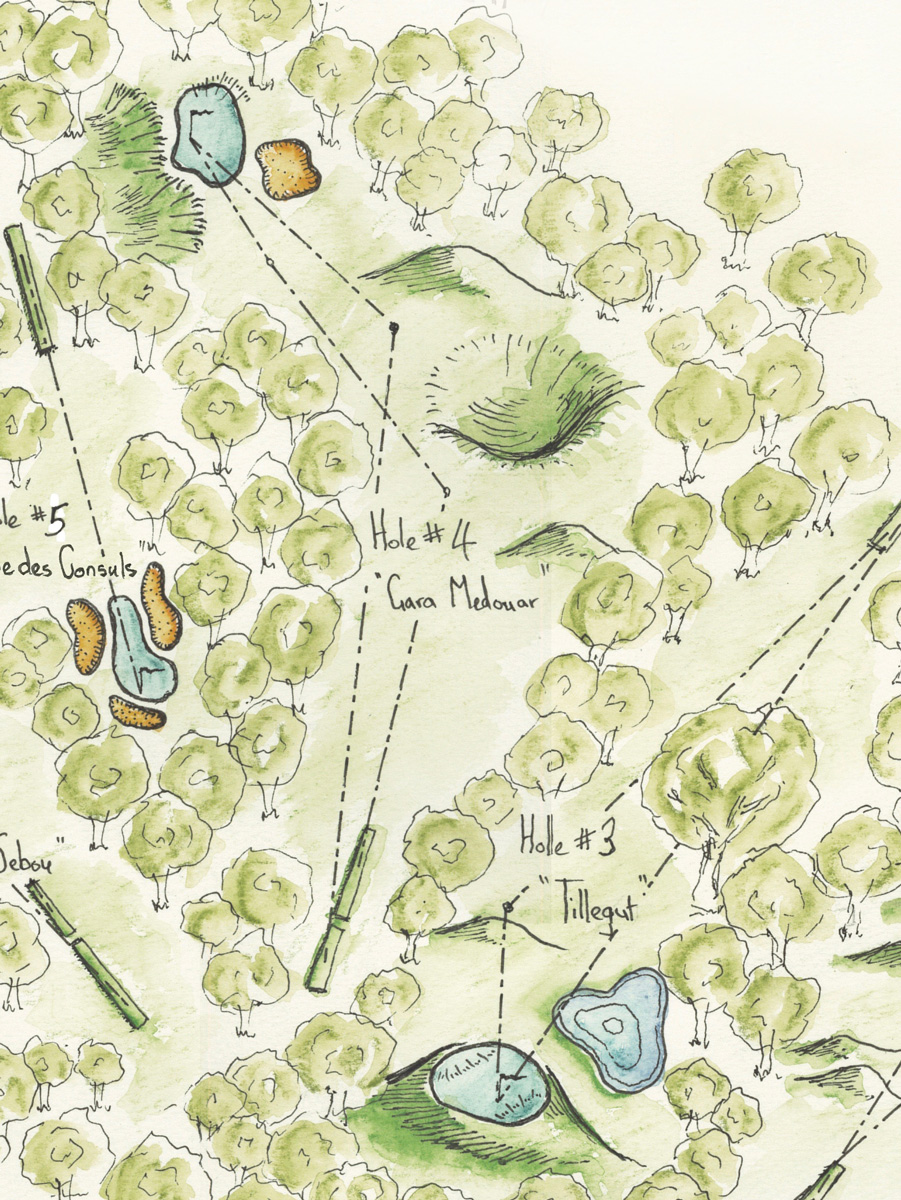Artisan Golf Design’s plans for the redesign of Chaska Par 30 have been approved. The course neighbours Hazeltine National. It was laid out in 1972 by Robert Trent Jones Sr.
The project is a partnership between the City of Chaska and local non-profit Barrier Free Golf. John Kellin, head golf professional of Chaska Town Course, is representing the city on the project team.
“Tournament golf is part of Chaska’s identity,” said Kellin. “Hazeltine National has hosted the Ryder Cup, the US Open and the Women’s PGA. Chaska Town Course co-hosted the US Amateur in 2006 and will do so again in 2024. We’re proud of this heritage but our day-to-day focus is on serving the widest cross-section of golfers that we can.”
Warren said: “After fifty years of service the Par 30 needs investment. Through stakeholder engagement it became clear that the project’s goals should also embrace sustainability and accessibility.” The project has reached 75 per cent of its funding target, with 50 per cent of a US$1.5 million budget being contributed by the city. The plan is to break ground in April 2020 and reopen the course in summer 2021.
Elite adaptive golfer Caroline Mohr will work with Artisan Golf Design to ensure that playing features on the new Par 30 are fun and safe for golfers with disabilities.
“Our design retains the current par of 30 but features ten all-new golf holes,” said Warren. “We’ll move the clubhouse over to Hazeltine Boulevard and build a Himalayas-style putting course inspired by the public putting greens in my hometown, North Berwick. These types of facilities are a tried and tested entry point to the game. Absolutely anyone can enjoy the feeling of trundling a golf ball towards a hole. There’s going to be a lot of energy around the new clubhouse.
“We’re fortunate that Ian Williams and Don Mahaffey of Green Irrigation Solutions, sustainability expert Tom Mead, and University of Michigan turfgrass scientist Dr Brian Horgan have all contributed their talents to the planning phase.”
“This is an exciting time for adaptive golf,” said Mohr. “Visibility and participation are increasing, and we have a new world ranking system that enables players with disabilities to compete in the same category as able-bodied golfers. I can’t wait to see adaptive golfers on the main tours in the near future!
“The therapeutic benefits of spending time in green space are well known,” continues Mohr. “Coming back to play golf after the loss of my leg was freeing, healing and exciting. The golf course is a place to find your voice as a player, challenge your limits and grow. It is not only a place to practice your golf swing, but to actually deepen your knowledge about yourself, test your focus and learn about how you react to specific challenges. That’s the interesting part about golf, it goes far beyond the game on the course.
“Inclusion in the Paralympic Games at Paris 2024 or Los Angeles 2028 seems likely. Athlete categories will be diverse. Perhaps competitors with severe impairments will be chasing medals on a barrier free short course? Time will tell, but seeing the Learning Links model replicated in more communities would be really positive. Could Chaska Par 30 be the entry point for a future Paralympian?”
Warren added: “There seems to be some momentum in short course development. The developers of destination resorts have proven that these facilities are popular and profitable. I consider the success stories at Goat Hill Park and Winter Park 9 to be more exciting though. Short courses are a perfect fit for urban lifestyles and can wipe their feet financially as part of a city’s golf portfolio. The project partners in Chaska aim to show that a barrier free golf facility can be an asset for the entire community. Artisan Golf Design is proud to be helping this cause.”




